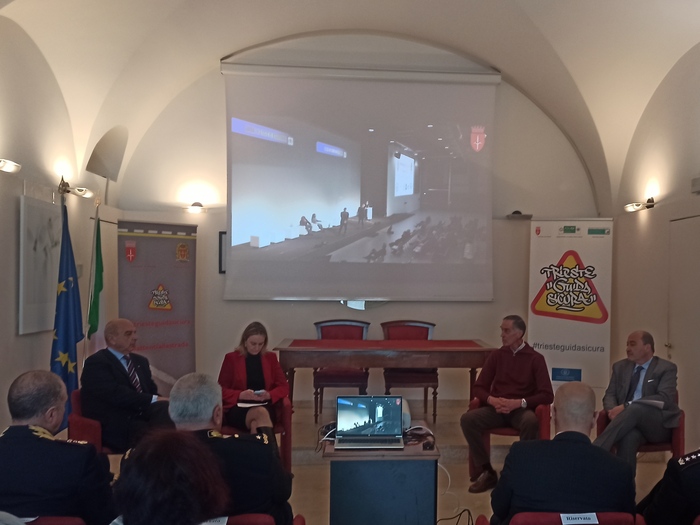Peter Sattmann is one of those actors whose name does not immediately tell anyone, but whose face is known to many. The 72-year-old played in the 1970s under Claus Peymann at the Theater in Stuttgart, was twice elected actor of the year during this time.
Later he appeared mainly in the cinema and on television, had numerous roles in successful films such as "Billiards" with Constanze Engelbrecht and Iris Berben or "made-up" with Katja Riemann. He was in a relationship with Riemann for ten years. The two have a daughter.
On November 4, Sattmann's autobiography "My Life is Not a Screenplay", in which he tells his eventful past: It's about his youth in the GDR, his move to the West in 1957, the abuse of a cleric, his time as a tramp in the 1960s and his erratic lifestyle with drugs and games. None of this is what Sattmann wants to do without.
SPIEGEL: Mr. Sattmann, your autobiography is equally influenced by comedy and drama. How do you remember your childhood?
Sattmann: Without exception, I have good memories. Unlike many other people. I am very thankful for my life, for everything that has happened. I find myself richly gifted by fate. The very fact that you live in this gap where there is no war.
SPIEGEL: Even as a child, you had to experience something that others would call traumatic. Almost amused, you describe how, at the age of four, you found your father when he was trying to hang himself.
Sattmann: I have written everything from a childish point of view. This may create a frivolity in dealing with these stories. I can still see my dad looking at me.
SPIEGEL: What did you think when you saw your father like that - with a rope around his neck?
Sattmann: If he cries and does not want to live anymore, I thought, you have to allow him to do that. I pushed my mother away because she wanted to bring him down. 'You see, he does not want to live anymore,' I said. As a child, you just think that you can not refuse a crying person. The two who always wanted to split up, found it so funny that they basically found it again.
SPIEGEL: Why was your father so desperate?
Sattmann: My father was a very melancholy man, suicidal all his life. Especially when it was full moon, he was depressed. We were always afraid he might do something to himself. I probably inherited that.
Price query time:
06.11.2019, 09:25 clock
No guarantee
DISPLAY
Peter Sattmann
My life is not a script: timepieces
Publishing company:
Droemer HC
Pages:
304
Price:
EUR 19.99
Buy from Amazon Buy from Thalia
Product information is purely editorial and independent. The so-called affiliate links above, we usually receive a commission from the dealer when buying. More information here.
SPIEGEL: Did you have thoughts of suicide yourself?
Sattmann: Again and again. I wanted to jump off a bridge at the age of eight. I always feel close to death. I want to live with it, and I want to die happily with it.
SPIEGEL: Why do you have such thoughts?
Sattmann: Because I do not mind getting old. This performance loss is terrible. Since I was 50, I take ten tablets every twelve hours for survival. I have tremendously high blood pressure, adult onset diabetes and atrial fibrillation. With a blood pressure of 230: 190 and a heart rate of 160 I thought in the last weeks, the publication of my book I will not live to see.
SPIEGEL: Are these consequences of your lifestyle?
Sattmann: Can be. But I rather smoke than live ten years longer.
SPIEGEL: Your parents moved with you from Zwickau in Saxony to Friedrichshafen on Lake Constance in 1957 at the age of ten. How was that for you?
United Archives / imago
Scene from "Karambolage" (1988) with Constanze Engelbrecht (l.), Volker Kraeft (2nd from right) and Iris Berben (r.)
Sattmann: I secretly mourned a lot and wanted to go back immediately. I only cried after the first day of school. I actually liked to go to school. Especially in the east. There was no pressure to perform in the classical sense in the East; people had learned together. I was looking forward to it in the West, too. But the chocolate kisses, the bananas and oranges could not sweeten my life in the West. It was horror in the West, mainly by a pastor whom I called the "black man". Generations of boys have suffered from his brutal beatings. Beatings were allowed in West Germany until 1962, while they were long banned in the GDR.
SPIEGEL: Not only did the pastor beat him, he also abused you and the other guys for his sexual fantasies by masturbating while letting you play all the blind cow. You never told your parents about it. Why not?
Sattmann: I think I was ashamed, I thought it was my fault that I got Threshing. If my parents were still alive, I would not have mentioned it in my book.
SPIEGEL: Would your life have been different if that had not happened?
Sattmann: Yes. I would have spent the school time happy. I do not have those bad memories and that hatred of this man, this contempt.
SPIEGEL: You ended up on the street in Munich as a teenager.
Sattmann: Yes, as homeless, as a bum, as a bum, as a tramp, call it what you want. As a young person you wanted to go to Munich, because that was the first port of call for the youth movement. I wanted to be free. Gammeln is excellent, as long as the sun is shining and you can spend the night outdoors casually. But when it was cold and the station was shut down and everyone was driven out of there, I made steady running around the station so I would not freeze to death.
SPIEGEL: Are these experiences perhaps decisive for your melancholy, your suicidal thoughts?
photo gallery
16 pictures
Actor Peter Sattmann: "Do you feel lonely?" "Lonely would be exaggerated, but alone"Sattmann: That can be good. But I got much older than I dreamed, I'm very happy. In November '66 I tried to get to drama school and that worked, so I was out of this bum life again. Nevertheless, I was convinced at a young age to die at 54. I always tell my daughters: Do not grieve if I die! Be glad I made it.
SPIEGEL: What do your daughters say about that? You have three children from three different mothers, right?
Sattmann: Yes, but we only talk about two. The older and the youngest have been conceived eye to eye. The other, she is now about 35, is the result of an affair, it was a mistake.
SPIEGEL: But she is your daughter.
Sattmann: I sent money for 20 years, but I have no relationship with her. I do not want to tell that, please.
SPIEGEL: And your relationship with the other two daughters and their mothers?
Sattmann: That's heartfelt. Katrin's mother does not live anymore. Paula's mother Katja (Riemann) and I are still friends, even in love.
Franziska Krug / Getty Images
Peter Sattmann and Katja Riemann (1997): "We tell each other: I love you"
SPIEGEL: Why are you not together anymore?
Sattmann: Because that's not possible. I think I'm an imposition to anyone else when it comes to living together because I'm a loner and a big ego-centrist.
SPIEGEL: Does Katja Riemann see it that way?
Sattmann: Yes, but she would not call it imposition. We tell each other: I love you, but I never want to live with you again. We were together for ten years. At the moment she has no lover, no life partner. I finish every email with "I love you, I kiss you". Gorgeous! We separated without a war of roses. The tabloid press wrote that the relationship had failed. However, I think that if you can break up in friendship after ten years, then a relationship has not failed, but succeeded.
SPIEGEL: In your book, you write that friendship is now more important to you than a love affair. Because sex becomes less important with age?
Sattmann: Well, sex can also happen in a friendship. You can be friends with a woman, live separately, have separate refrigerators and TVs, but still find yourself in bed again and again. Or in the kitchen.
SPIEGEL: You consider yourself a loner. What makes you so incompatible with other people?
Sattmann: For example, I feel like a kind of bondage when you have to make an appointment: then we get up, then we go, then we go to the movies. There are situations where I regret living alone. That's the bad thing about living as a single, that you can not share anything. How did Albert Schweitzer say? Luck is the only thing that doubles when you share it.
SPIEGEL: Do you feel lonely?
Sattmann: Lonely would be exaggerated, but alone. Terrible situations or disasters I can handle well with myself. But the nice things? I often miss my mother, whom I always called. I still have many friends and a lot of visitors. But I like being alone. But not without a computer. I'm going crazy if the internet is not working.
SPIEGEL: How much time do you spend on the computer?
Sattmann: Yesterday it was ten hours. I am a player, playing World of Warcraft for 15 years. There was an expansion for that, so I played ten hours yesterday.
Anita Bugge / Getty Images
Sattmann 2011 in the play "Jedermann" in the Berlin Cathedral
SPIEGEL: Are you addicted?
Sattmann: Of course, a game that is not addictive is not a good game.
SPIEGEL: Are you in control?
Sattmann: Nah, I do not want that either. I love my addictions, also narcotic. The addiction enriches my life.
SPIEGEL: Which intoxicants do you take?
Sattmann: marijuana.
SPIEGEL: This morning too?
Sattmann: No, always after work. Otherwise I would not have survived. I've really tried everything, synthetic drugs, spice blends, even heroin. I survived because I had the maxim that a clear head is the best drug for work. The drugs are part of the workday and the festivals.
SPIEGEL: Did you write your book with marijuana in the evening or without it during the day?
Sattmann: Never stoned! If I'm creative, then I'm excessive. Then it goes through a month, almost without sleep, so 16 hours a day with plenty of coffee and water, little food and little sleep. My works are almost always pressbirths.
SPIEGEL: For a few years you have been touring Germany with a kind of cabaret program. Is the audience different in East and West?
Sattmann: That's very different. We love to play in the former East, really. People are grateful for the bank. They are more pleased that one comes. When I hear this Saxon dialect, I always feel right at home. Unfortunately, I was only allowed to play a role in Saxon once. That was with Thekla Carola Wied.
ddp images
Sattmann (r.) With Thekla Carola Wied (l.) In the movie "I complain": Disciplined at the location
SPIEGEL: Do you often stand in front of the camera?
Sattmann: Rare. I do not feel like it anymore. Compared to the seventies and eighties, German television is now just boring. In 1974, we had 36 shooting days for my first 90-minute television movie. Today you get a maximum of 20. The books are not so good, and above all it disturbs the constant clean-talking of the television editors. They have become so powerful. There used to be only one authority, that was the director.
SPIEGEL: You often play in films by Inga Lindström or Utta Danella. Are you satisfied with the shallower fabrics?
Sattmann: Actually, I just started with it, because that was the biggest thing for my mother. She should have been able to see her son in such a movie once. I'm from the theater, I've approached a bit more demands on this profession and have done quite different things on television in the 1970s and 1980s. But once you're in the heart cinema drawer, you can not get out of it.
SPIEGEL: Are you jealous of character actors like Ulrich Tukur, Armin Mueller-Stahl or Mario Adorf, who are discussed in the features section?
Sattmann: That's it. Sometimes I would like to have been in their place. I would like to play what was offered to them. I would also have liked to say 'Honey in the head' by Til Schweiger if he had called. It does not frustrate me that it did not happen. I still like the Hallervorden very much. I throw all my diligence, all my imagination into the heart cinema and am disciplined at the location. It's not that I do it casually, I take it as seriously as a character role.
SPIEGEL: Why did your development differ from those of a reputation actor?
Sattmann: Because I always needed money and could never afford to cancel something. I was good at business, but can not save. I always enjoy the money when I can spend it. Many people have benefited from it. I was generous to the point of addiction. When I had money, I kept inviting people.
SPIEGEL: Do you sometimes change your behavior?
Sattmann: I did that, for example, by giving up my luxury house in Zehlendorf and now living in Stahnsdorf. Two years ago, I suddenly realized that it was not enough for the next rent. My account was already 25,000 euros. I earned money for many years, and suddenly it was gone. There were no more offers, because with the Herzkino it is now over, because I'm a Grandpa.
SPIEGEL: In real life you are not yet a grandpa.
Sattmann: I really regret that. I would like it. But I probably have to do my grandchildren myself.


/cloudfront-eu-central-1.images.arcpublishing.com/prisa/JMRBBZ4QNBFGBEH2SYHTLJHQKQ.jpg)






